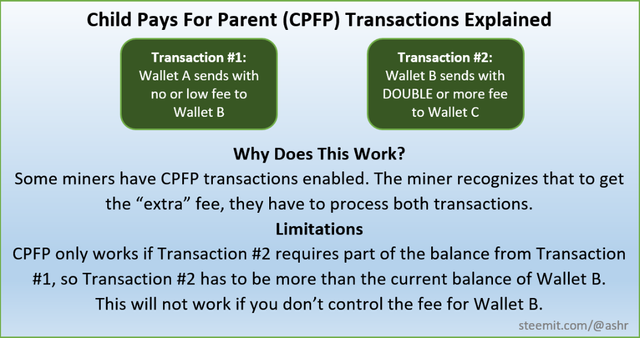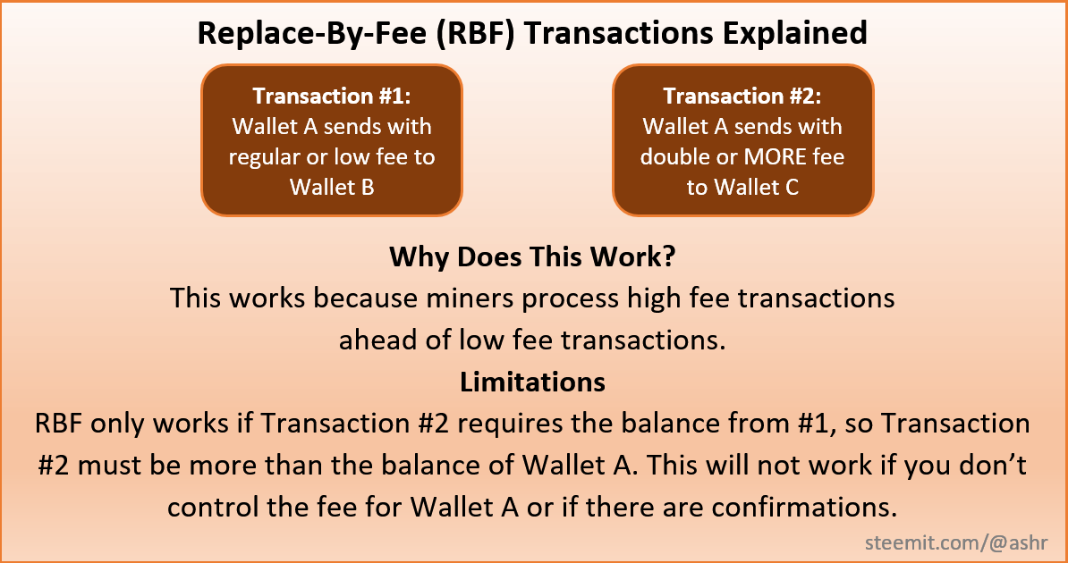Save Your Bitcoin With These Two Fancy-Fix Transactions
Occasionally, mistakes are made when sending Bitcoin from one address to another. Sometimes there is a compromised system or a missed character in an address. Maybe you forgot to adjust the fee. Many people think there is no way to help these situations but to wait and see. There are actually ways to fix these mistakes but you have to act quickly. These fixes aren't guaranteed and are time sensitive. I advise learning them now so you can use them as soon as you need them.
Child-Pays-For-Parent(CPFP) Transactions
This is the simpler of the two transaction types in this post. If you have an inbound transfer that is taking too long, you can speed it up by sending the balance with an increased fee to another address, because certain miners use a software that can recognize the double fee they'll get for processing both.

Replace by Fee (RBF) Transactions
RBF Transactions are controversial as they act as a charge back does in traditional currency systems. RBF is for when you send it to the wrong address. These are VERY time sensitive and generally must be done prior to the first confirmation. You re-spend the value of a prior transaction by using a very large fee on the replacement transaction. It CAN (and the intent is to) invalidate the first transaction if you do it quickly enough and use a high enough fee. It works because the high fee rushes the corrected transaction to confirmations ahead of the first transaction, which invalidates the first one. Once there are confirmations it is usually too late. This is why exchanges require confirmations before making a balance spendable on their site.

CPFP vs RBF - Which Will Win?
An often mentioned hypothetical is which would win in the case of a transaction with a receiver side CPFP and a sender side RBF. A receiver rushing or a sender replacing, who has priority? Neither has priority by default. In true blockchain fashion, first to confirmation wins, and by increased fees, the miners win too.
Keep Your BTC
The best way to make sure you don't lose crypto is to triple check the first 5 and last 5 of the address every time you send, use systems free from malware, to use small test transactions when sending large amounts, and to divide large amounts into multiple transactions. While I hope you never have to use these, it's good to learn how to use them before you need them.